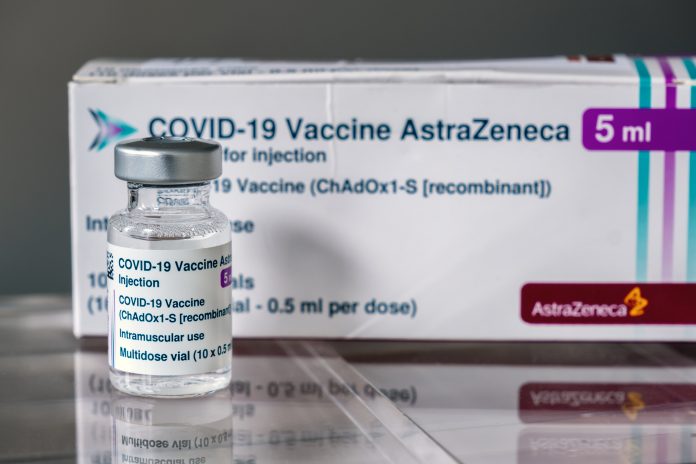Over the last three months, scientists have been tracing rare instances of blood clots in veins in connection to the AstraZeneca COVID vaccine – now, they have the first evidence of arterial blood clots, which can cause stroke
Clots in the veins, specifically in the brain, have been discussed at large across Europe in relation to the AstraZeneca vaccine. The European Medicines Agency dismissed the chances of a blood clot after the injection and okayed the drug for ongoing use, describing the risk as an “extremely small likelihood”.
In the UK and US, similar investigations brought similar conclusions – label the vaccine with this potential side effect, but keep it in circulation because the likelihood of blood clots remains so small that it makes more sense not to waste the protection offered.
But now, in May 2021, there is fresh evidence of a different type of clot that is happening in younger people after they take the COVID vaccine. Clots in the arteries are the most common cause of ischaemic stroke, which is also connected to low platelet counts like the previous vaccine-clots in the veins.
Even with this new insight, the likelihood of blood clots from the AstraZeneca vaccine remains lower than the same odds for the same thing in response to birth control – which is globally used with no real alternative.
Young patients with stroke should be “urgently” tested
Professor David Werring from the Stroke Research Centre, UCL Queen Square Institute of Neurology, is the lead authors. He says that the cases mean that vaccine-induced immune thrombotic thrombocytopaenia (VTT) can also lead to clots that block arteries supplying the brain, causing a stroke.
The authors of the study said: “Young patients presenting with ischaemic stroke after receiving the [Oxford-AstraZeneca] vaccine should urgently be evaluated for VITT with laboratory tests (including platelet count, D-dimers, fibrinogen and anti-PF4 antibodies), and managed by a multidisciplinary team (haematology, neurology, stroke, neurosurgery, neuroradiology) for rapid access to treatments including intravenous immune globulin, methylprednisolone, plasmapheresis and non-heparin anticoagulants, for example fondaparinux, argatroban, or direct oral anticoagulants.”
In all three cases discussed by the authors, the ischaemic stroke was associated with blockages of large arteries (both carotid and middle cerebral artery) and two patients also had venous thrombosis involving the portal and cerebral venous system. All three also had extremely low platelet counts, confirmed anti-PF4 antibodies, and raised D-dimer – which is also linked to clotting.
What symptoms should you look out for?
One patient, a woman in her 30s, had a headache on the right side and around her eyes six days after the vaccine. Five days later, she woke up feeling drowsy and with weakness to her left side – face, arm and leg. She had to go into brain surgery for the blood clot, but tragically died.
Another patient, a man in his early 40s, has problems 3 weeks after receiving his vaccination. He struggled with speaking and understanding language (dysphasia). He received a platelet and plasma transfusion, and fondaparinux, and remains stable.
A final patient, a woman in her late 30s, presented with headache, confusion, weakness in her left arm and loss of vision on the left side 12 days after having received the vaccine. Her platelet count increased following plasma removal and replacement and intravenous corticosteroids. She was then given fondaparinux and improved.
‘Remember these side effects are rare’, says Professor
Professor Hugh Markus, from the Department of Clinical Neurosciences, at the University of Cambridge, said: “This report emphasises that the immune mediated coagulopathy can also cause arterial thrombosis including ischaemic stroke, although venous thrombosis and especially cerebral venous sinus thrombosis appear more frequent.
“During the current period of covid vaccination a high index of suspicion is required to identify thrombotic episodes following vaccination. However, it is important to remember that these side-effects are rare, and much less common than both cerebral venous thrombosis and ischaemic stroke associated with covid-19 infection itself.”











